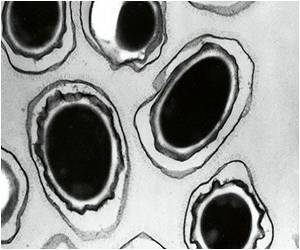One per cent of the population have a natural genetic resistance to deadly disease such as HIV, malaria, leprosy and hepatitis, scientists have revealed, scientists have revealed.

There are effective vaccines against anthrax and some forms of the disease respond well to antibiotic treatment.
However, researchers at the Stanford University School of Medicine in the United States have discovered that susceptibility to anthrax toxin is a heritable genetic trait.
Professor Stanley Cohen, the senior author of the new study, and his colleagues found that variation in the level of expression of a gene that produces a cell-surface protein called CMG2 affects the success of the anthrax toxin in gaining entry into human cells.
The research suggests that analogous effects may occur in people exposed to anthrax bacteria.
Anthrax disease is caused by infection with the anthrax bacteria. Spores of the bacteria exist naturally in the environment.
Advertisement
Once in the bloodstream, the bacteria begin to produce the anthrax toxin that infiltrates and kills host cells.
Advertisement
Untreated, anthrax infection can cause widespread tissue damage, bleeding and death.
The researchers studied immune cells called lymphocytes collected from 234 people of varying ethnic and geographic backgrounds: 84 Nigerians, 63 Americans whose ancestors came from northern and western Europe, 44 Japanese and 43 Han Chinese.
They found that, of the 234 samples, lymphocytes from three individuals of European ancestry were thousands of times more resistant to killing by an engineered hybrid toxin brought into the cells by protective antigen.
In addition, they observed that cells isolated from parents and their children responded similarly, indicating that toxin sensitivity is an inherited trait.
The researchers noted that the finding has implications beyond anthrax exposure.
"Our findings, which reveal the previously unsuspected magnitude of genetically determined differences in toxin sensitivity among cells from different individuals, suggest a broadly applicable approach for investigating pathogen susceptibility in diverse human populations," the Daily Mail quoted Prof Cohen as saying.
The research was published online in the Proceedings of the National Academy of Sciences.
Source-ANI











